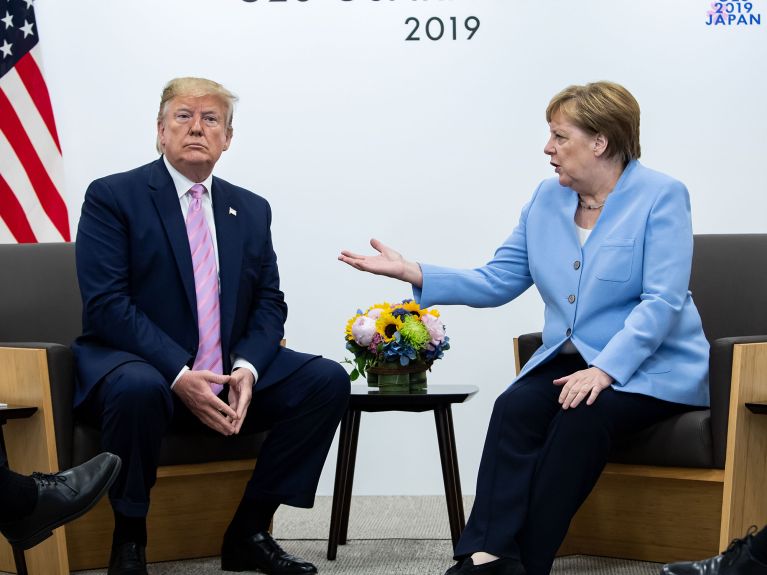Saving the bond
The US is decoupling from its 70-year-old partnership with Europe. The trans-Atlantic relationship must start again from scratch.

“We will be back” – that was the comforting message Joe Biden had for the Europeans just four months ago. Speaking at the Munich Security Conference, the former US vice president and current Democratic frontrunner in the incipient 2020 electoral campaign, sought to reassure US allies that after Donald Trump, the trans-Atlantic estrangement caused by his America First policies would quickly be overcome, and the previous consensus re-established as a matter of course. “The America I see does not want to turn our back on the world or our allies. Don’t have any doubt about that.”
The doubts have grown
Since Munich, the doubts have grown, and the hope fed by Biden has vanished in many European quarters. At best, many experts feel that one can expect a new administration to rescind the tariffs on steel and aluminum, and to rejoin the Paris climate accord and the nuclear deal with Iran. But the old narrative will be hard to revitalize.
Trump has certainly done his best to create this impression. His foreign policy centers no longer on the pursuit of broader interests and ideas. In fact, it increasingly boils down to tariff tiffs. Sylvie Kaufmann of the French daily “Le Monde” put it in a nutshell: “The former New York real estate king is spreading fear and horror no longer with the number of nuclear warheads, but with a frightening arsenal of economic sanctions and tariffs.”
World War II was decided by huge tank battles. Potential future wars between great powers will likely be conducted in cyberspace; already they are planting digital mines in each other’s power grids. For the time being, the US president is engaged in a rampant trade and tariff war. His battlefield is the global commercial system.
Tariffs, financial isolation, sanctions
Small wonder that the term “weaponization of trade” dominates the international discussion these days. “Weapons of mass disruption” – “The Economist” titled a cover story a few weeks ago. It was illustrated by a bomb tipped with Trump’s face roaring downward. Four terms were stenciled on its side: tariffs, tech blacklists, financial isolation, sanctions.
These are the weapons Trump employs without distinguishing between friend and foe. Whoever makes a surplus trading with the United States is automatically an adversary. And Trump uses tariff and tech sanctions indiscriminately not only to achieve trade concessions, but also to put through political outcomes.
As 88 percent of world trade is transacted in dollars, he has enormous leverage. The results, however, are minimal. Fred Kempe of the Atlantic Council has pointed out the unfortunate truth “that tariffs are insufficient at best and counterproductive at worst in achieving non-trade outcomes.” And Trump’s weaponization of trade can’t but rile up America’s friends and allies.
Trump’s populist instincts worry the Europeans
Yet it is not only the bullying from Washington and the president’s nationalist, protectionist and populist instincts that worry the Europeans. The realization is dawning on them that even after the end of the Trump presidency – which might not come before January 2025 – things won’t be the same again. The US is decoupling from its 70-year-old partnership with Europe.
François Delattre, consecutively French ambassador to the United States and to the United Nations during the past ten years, who will assume the post of Secretary General at the Quai d’Orsay on July 1, wrote in a farewell article in “The New York Times”: “America’s disengagement started before the current administration. I believe it is here to stay.”
“For how long will America remain our strategic partner?”
He discerns a “Jacksonian impulse” as the dominant trend in US foreign policy – “a strange mix of unilateralism and isolationism” pursued by President Andrew Jackson in the 1830s.
In the same vein, Alain Frachon editorialized in “Le Monde” about the coming “Atlantic disalliance,” posing the disquieting question: “For how long will America remain our strategic partner?”
Read the whole text on The German Times website
Theo Sommer is executive editor of The German Times.
